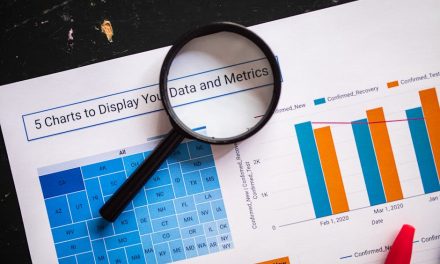Table of Contents
- Introduction
- The Importance of Self-Awareness in Leadership and Career Development
- How Self-Awareness Impacts Decision-Making in Leadership and Career Development
- Developing Self-Awareness for Effective Leadership and Career Growth
- The Link Between Self-Awareness and Emotional Intelligence in Leadership and Career Development
- Q&A
- Conclusion
Unleash your potential through self-awareness.
Introduction
Self-awareness plays a crucial role in leadership and career development. It involves having a deep understanding of one’s own strengths, weaknesses, values, and emotions. By being self-aware, individuals can effectively manage their behavior, make informed decisions, and build strong relationships with others. In the context of leadership, self-awareness allows leaders to recognize their impact on others, adapt their leadership style, and inspire and motivate their team members. In terms of career development, self-awareness helps individuals identify their passions, set meaningful goals, and make choices that align with their values and strengths. Overall, self-awareness is a fundamental aspect of personal growth and success in both leadership and career endeavors.
The Importance of Self-Awareness in Leadership and Career Development

The role of self-awareness in leadership and career development cannot be overstated. Self-awareness is the ability to recognize and understand one’s own thoughts, emotions, and behaviors. It involves being conscious of one’s strengths, weaknesses, values, and goals. In the context of leadership and career development, self-awareness plays a crucial role in personal growth, decision-making, and building effective relationships.
Self-awareness is essential for leadership because it allows individuals to understand their own leadership style and how it impacts others. By being aware of their strengths and weaknesses, leaders can leverage their strengths and work on improving their weaknesses. This self-reflection enables leaders to make better decisions and take actions that align with their values and goals.
Furthermore, self-awareness helps leaders understand how their behavior affects their team members. By recognizing their own emotions and reactions, leaders can regulate their behavior and create a positive work environment. This self-regulation is crucial for building trust and fostering open communication within the team.
In addition to leadership, self-awareness is also vital for career development. When individuals have a clear understanding of their strengths and weaknesses, they can make informed career choices. Self-awareness allows individuals to identify their passions and interests, which can guide them towards a fulfilling career path.
Moreover, self-awareness helps individuals set realistic goals and develop strategies to achieve them. By understanding their own values and priorities, individuals can align their career goals with their personal aspirations. This alignment increases motivation and enhances job satisfaction.
Self-awareness also plays a significant role in building effective relationships in the workplace. When individuals are aware of their own emotions and reactions, they can better understand and empathize with others. This empathy fosters strong interpersonal connections and promotes collaboration and teamwork.
Furthermore, self-awareness enables individuals to recognize and manage their own biases and prejudices. By being aware of their own beliefs and assumptions, individuals can challenge them and create a more inclusive and diverse work environment. This inclusivity enhances creativity and innovation within the team.
Developing self-awareness is a lifelong process that requires continuous self-reflection and feedback. There are several strategies individuals can employ to enhance their self-awareness. Journaling, meditation, and seeking feedback from others are effective methods for gaining insight into one’s thoughts, emotions, and behaviors.
In conclusion, self-awareness plays a crucial role in leadership and career development. It allows individuals to understand their own strengths, weaknesses, values, and goals. Self-awareness enables leaders to make better decisions, regulate their behavior, and build effective relationships. In terms of career development, self-awareness helps individuals make informed choices, set realistic goals, and align their career aspirations with their personal values. Developing self-awareness is a continuous process that requires self-reflection and feedback. By cultivating self-awareness, individuals can enhance their leadership skills, advance their careers, and create a positive and inclusive work environment.
How Self-Awareness Impacts Decision-Making in Leadership and Career Development
Self-awareness is a crucial aspect of leadership and career development. It plays a significant role in decision-making processes, influencing the outcomes and success of individuals in their professional journeys. By understanding oneself, leaders and professionals can make informed choices that align with their values, strengths, and goals.
One way self-awareness impacts decision-making in leadership and career development is by helping individuals recognize their strengths and weaknesses. When leaders have a clear understanding of their abilities, they can leverage their strengths to make effective decisions. They can also identify areas where they may need support or improvement, allowing them to seek opportunities for growth and development.
Moreover, self-awareness enables leaders and professionals to align their decisions with their values. When individuals are aware of their core beliefs and principles, they can make choices that are consistent with their personal and professional ethics. This alignment fosters a sense of authenticity and integrity, which are essential qualities for effective leadership and career development.
Self-awareness also plays a role in decision-making by helping individuals understand their emotions and how they impact their choices. Emotions can influence decision-making processes, sometimes leading to impulsive or irrational decisions. However, when individuals are self-aware, they can recognize their emotions and take them into account while making decisions. This self-awareness allows leaders and professionals to make more rational and balanced choices, considering both their emotions and logical reasoning.
Furthermore, self-awareness helps individuals understand their goals and aspirations. By being aware of their desires and ambitions, leaders and professionals can make decisions that align with their long-term objectives. This self-awareness allows them to prioritize their actions and make choices that contribute to their career development and overall success.
In addition to these benefits, self-awareness also enhances communication skills, which are crucial for effective leadership and career development. When individuals are self-aware, they can better understand how their words and actions impact others. This understanding allows them to communicate more effectively, considering the needs and perspectives of their team members or colleagues. Effective communication fosters collaboration, trust, and mutual understanding, all of which are essential for successful leadership and career development.
To develop self-awareness, individuals can engage in various practices. Reflective exercises, such as journaling or meditation, can help individuals gain insights into their thoughts, emotions, and behaviors. Seeking feedback from trusted mentors or colleagues can also provide valuable perspectives on one’s strengths and areas for improvement. Additionally, engaging in self-assessment tools or personality assessments can offer insights into one’s personality traits and preferences, further enhancing self-awareness.
In conclusion, self-awareness plays a crucial role in decision-making processes in leadership and career development. By understanding oneself, individuals can recognize their strengths and weaknesses, align their decisions with their values, consider their emotions, and understand their goals. Self-awareness also enhances communication skills, fostering effective collaboration and understanding. Developing self-awareness through reflective exercises, seeking feedback, and engaging in self-assessment tools can contribute to personal and professional growth. Ultimately, self-awareness empowers individuals to make informed choices that lead to success and fulfillment in their leadership and career journeys.
Developing Self-Awareness for Effective Leadership and Career Growth
The Role of Self-Awareness in Leadership and Career Development
Developing Self-Awareness for Effective Leadership and Career Growth
Self-awareness is a crucial aspect of leadership and career development. It involves having a clear understanding of one’s strengths, weaknesses, values, and emotions. By being self-aware, individuals can make better decisions, build stronger relationships, and achieve their goals more effectively. In this article, we will explore the importance of self-awareness in leadership and career development and discuss strategies for developing self-awareness.
Self-awareness is essential for effective leadership. Leaders who are self-aware understand their own strengths and weaknesses, allowing them to leverage their strengths and compensate for their weaknesses. This self-understanding enables leaders to make informed decisions and take calculated risks. Additionally, self-aware leaders are more likely to seek feedback from others and be open to learning and growth. By continuously reflecting on their actions and behaviors, self-aware leaders can identify areas for improvement and take steps to develop their skills.
Self-awareness also plays a significant role in career development. When individuals have a clear understanding of their values, they can align their career choices with what is most important to them. This alignment leads to greater job satisfaction and fulfillment. Furthermore, self-aware individuals are more likely to set realistic goals and develop strategies to achieve them. They understand their strengths and weaknesses, allowing them to pursue opportunities that capitalize on their strengths and address their weaknesses. By being self-aware, individuals can make intentional career decisions that align with their long-term aspirations.
So, how can individuals develop self-awareness? One strategy is to engage in self-reflection. Taking the time to reflect on one’s thoughts, emotions, and behaviors can provide valuable insights into one’s strengths, weaknesses, and values. Journaling, meditation, and mindfulness practices are effective tools for self-reflection. These activities allow individuals to observe their thoughts and emotions without judgment, leading to a deeper understanding of themselves.
Another strategy for developing self-awareness is seeking feedback from others. Asking for feedback from colleagues, mentors, and supervisors can provide valuable insights into one’s strengths and areas for improvement. It is important to approach feedback with an open mind and a willingness to learn. By actively listening to others’ perspectives, individuals can gain a more accurate understanding of how they are perceived by others.
Additionally, psychometric assessments can be helpful in developing self-awareness. These assessments, such as personality tests or emotional intelligence assessments, provide individuals with objective information about their strengths, weaknesses, and preferences. By understanding their personality traits or emotional intelligence competencies, individuals can gain insights into how they interact with others and make decisions. This knowledge can guide individuals in developing strategies to enhance their leadership and career development.
In conclusion, self-awareness is a critical component of effective leadership and career development. By understanding their strengths, weaknesses, values, and emotions, individuals can make better decisions, build stronger relationships, and achieve their goals more effectively. Developing self-awareness requires engaging in self-reflection, seeking feedback from others, and utilizing psychometric assessments. By investing in self-awareness, individuals can enhance their leadership abilities and make intentional career decisions that align with their long-term aspirations.
The Link Between Self-Awareness and Emotional Intelligence in Leadership and Career Development
The role of self-awareness in leadership and career development is a topic that has gained significant attention in recent years. Self-awareness is the ability to recognize and understand one’s own emotions, strengths, weaknesses, and values. It is a crucial skill for effective leadership and career success.
One important aspect of self-awareness is its link to emotional intelligence. Emotional intelligence refers to the ability to recognize, understand, and manage one’s own emotions, as well as the emotions of others. Research has shown that individuals with high levels of emotional intelligence are more likely to be successful leaders and have fulfilling careers.
Self-awareness is a key component of emotional intelligence. By being self-aware, individuals are able to accurately recognize and understand their own emotions. This allows them to effectively manage their emotions and make better decisions. In a leadership context, self-awareness enables leaders to understand how their emotions impact their behavior and how they are perceived by others. This understanding allows them to regulate their emotions and respond to situations in a more effective and appropriate manner.
In addition to its link to emotional intelligence, self-awareness also plays a crucial role in career development. When individuals are self-aware, they have a clear understanding of their strengths and weaknesses. This knowledge allows them to make informed decisions about their career path and set realistic goals. Self-aware individuals are also more likely to seek out opportunities for growth and development, as they are aware of areas where they need to improve.
Furthermore, self-awareness is important for building and maintaining positive relationships in the workplace. When individuals are self-aware, they are better able to understand and empathize with others. This allows them to build strong relationships based on trust and mutual respect. In a leadership context, self-awareness enables leaders to understand the impact of their actions on others and make adjustments as needed. This helps to create a positive and supportive work environment, which is essential for employee engagement and productivity.
Developing self-awareness is not always easy, but it is a skill that can be cultivated over time. One way to enhance self-awareness is through self-reflection. Taking the time to reflect on one’s thoughts, feelings, and behaviors can help individuals gain a deeper understanding of themselves. Journaling, meditation, and seeking feedback from others are all effective strategies for self-reflection.
Another way to develop self-awareness is through seeking feedback from others. Asking for feedback allows individuals to gain insight into how they are perceived by others and identify areas for improvement. It is important to approach feedback with an open mind and a willingness to learn and grow.
In conclusion, self-awareness plays a crucial role in leadership and career development. It is closely linked to emotional intelligence and is essential for effective decision-making, relationship building, and personal growth. Developing self-awareness requires self-reflection and seeking feedback from others. By cultivating self-awareness, individuals can become more effective leaders and achieve greater success in their careers.
Q&A
1. What is the role of self-awareness in leadership and career development?
Self-awareness plays a crucial role in leadership and career development as it allows individuals to understand their strengths, weaknesses, values, and goals, enabling them to make informed decisions and effectively lead and develop their careers.
2. How does self-awareness contribute to effective leadership?
Self-awareness helps leaders understand their own emotions, behaviors, and impact on others, allowing them to manage themselves better and build strong relationships with their team members. It also enables leaders to recognize and leverage their strengths, while addressing their weaknesses, leading to more effective decision-making and overall leadership effectiveness.
3. How does self-awareness impact career development?
Self-awareness is essential for career development as it helps individuals identify their interests, passions, and values, aligning them with suitable career paths. It also enables individuals to recognize their areas for improvement, seek growth opportunities, and make informed choices that align with their long-term career goals.
4. Can self-awareness be developed and improved?
Yes, self-awareness can be developed and improved through various practices such as self-reflection, seeking feedback from others, mindfulness techniques, and engaging in activities that promote self-discovery. Continuous self-assessment and learning can enhance self-awareness, leading to personal and professional growth.
Conclusion
Self-awareness plays a crucial role in leadership and career development. It allows individuals to understand their strengths, weaknesses, values, and emotions, which in turn helps them make informed decisions and effectively manage themselves and others. By being self-aware, leaders can build strong relationships, communicate effectively, and adapt to different situations. Additionally, self-awareness enables individuals to identify areas for improvement and take proactive steps towards personal and professional growth. Overall, self-awareness is a fundamental trait that contributes to successful leadership and career development.




